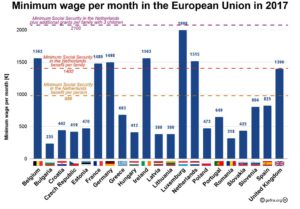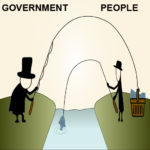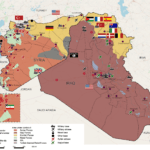Gefira #19 deals with the insoluble European economic imbalance, President Trump’s Jerusalem announcement as a brilliant move that has little to do with Israel, the revival of Central Europe, and Erdoğan’s grand plan for the Old Continent. The Gefira team predicts the next crisis will occur in 2020 because by that time the European workforce will have been significantly reduced and oil price will be at an all-time high.
Gefira Financial Bullletin #19 is Available now
Hardly any protests were staged against President Macron’s labour reforms, which comes as no surprise because – contrary to the enthusiasm expressed by the media – these are no serious reforms. The labour market is broke beyond repair.
Doing nothing in Western Europe is fivefold more lucrative as working in Central Europe. The difference in wages across the economic bloc is enormous and it is one more reason why further integration is doomed to fail.

France’s President has vowed that he will reinvigorate the economy and make his country competitive again. He started his presidency with the so-called fundamental labour reforms that also aim at giving employment to the huge number of Africans in the Banlieues, which, as is believed, can be solved by putting more money into education.
A study has revealed that French school children aged 9 to 10 have been ranked worst in Europe for their reading skills, a steady decline since 2001. Continue reading















